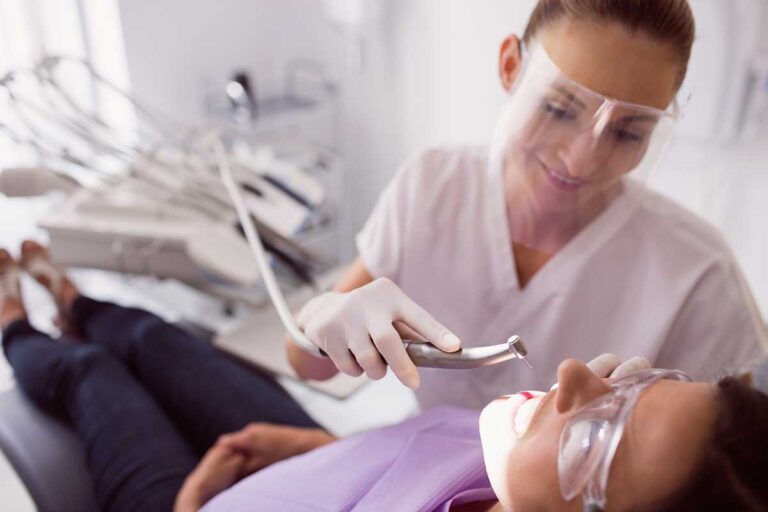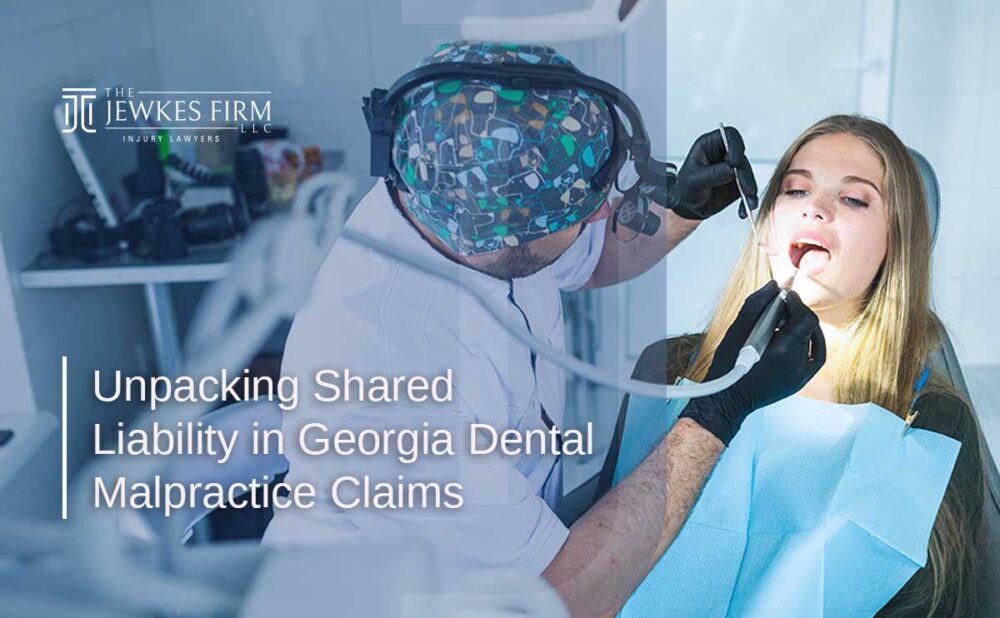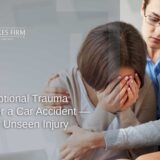Unpacking Shared Liability in Georgia Dental Malpractice Claims
Dental malpractice claims can be complicated, especially when more than one party might share responsibility for your injury. Dental malpractice cases in Georgia often involve more than just the treating dentist. At The Jewkes Firm, we understand that dental injuries can be both physically painful and emotionally distressing. When a dental procedure goes wrong, it’s natural to assume the dentist is fully at fault. But what happens if the dentist or dental professional is not fully responsible for your injury? In such cases, it’s crucial to identify all potential sources of liability to ensure you receive the compensation you deserve. Beyond the dentist, other individuals or entities may share responsibility for the injury.
If you or a loved one suffered harm during dental treatment in Georgia, it’s important to know that responsibility may extend beyond just the dentist. This article explores the potential parties involved in a dental malpractice claim and how those complexities impact your case.
Understanding Liability in Dental Injury Cases
Dental malpractice occurs when a dentist or dental professional fails to provide the accepted standard of care, resulting in injury to the patient. Examples include:
- Botched tooth extractions
- Misdiagnosis or delayed diagnosis of dental conditions
- Improper use of tools or anesthesia
- Failure to obtain informed consent
- Defective dental products
When these errors cause harm, the injured patient may have grounds to pursue compensation through a personal injury claim. Typically, your claim would target the dentist or dental practice responsible for the care.
However, liability isn’t always straightforward. Sometimes, the fault lies with more than one party.
In Georgia, you must prove the following elements to establish liability:
- Dentist-Patient Relationship. A recognized professional relationship must exist.
- Substandard Care. The care provided deviated from accepted dental practices.
- Causation. The substandard care directly caused the injury.
- Damages. The patient sustained actual injury or loss.
Suffering From Dental Negligence? Contact Us For A Free Consultation
Suffering From Dental Negligence?

Partial Responsibility — What Does It Mean?
In some cases, the dentist or dental professional may not be fully responsible for the injury. Partial responsibility can arise due to several reasons, such as:
- Shared Fault. The patient also contributed to the injury by not following post-treatment instructions (e.g., ignoring care advice, smoking, or failing to attend follow-up visits).
- Third-Party Negligence. Another party, such as a dental assistant, dental product manufacturer, or another healthcare provider, shares fault.
- Pre-Existing Conditions. The patient had a pre-existing condition that worsened regardless of the dentist’s care.
In these cases, you may file your claim against multiple parties, and the court allocates fault accordingly. This includes:
Defective Dental Products
If a faulty product—such as a defective dental implant, crown, or orthodontic appliance—causes a dental injury, courts may hold the manufacturer of that product liable. This falls under product liability law, which holds manufacturers accountable for defects in their products that cause harm.
Dental Office Premises Liability
Injuries occurring due to unsafe conditions within the dental office, such as slip and fall accidents or exposure to hazardous materials, may lead to premises liability claims. In these cases, the dental office owner or management may be responsible for maintaining a safe environment.
Third-Party Negligence
Sometimes, a third party’s actions contribute to the injury. For example, if a dental assistant administers anesthesia incorrectly or a laboratory technician manufactures a faulty dental appliance, they—or their employers—may be held liable for their negligence.
Vicarious Liability
Employers can be held responsible for the actions of their employees under the doctrine of vicarious liability. If a dental professional’s negligence occurs within the scope of their employment, the dental practice itself may be liable, even if the individual professional is not directly at fault.

How Does Georgia Law Handle Multiple Responsible Parties?
Georgia utilizes a modified comparative negligence system for personal injury claims, including dental malpractice. Under Georgia law, if you get hurt and share some of the blame, a judge or jury will decide how much fault each person has. This means:
- The court can divide liability proportionally based on each party’s percentage of fault.
- You can recover damages as long as your own fault is less than 50%.
- The court reduces your total damages award by your percentage of fault.
When multiple parties are responsible—such as the dentist, dental assistant, and a product manufacturer—the court can assign each party a specific percentage of liability. This rule encourages accountability while still protecting injured patients who were not primarily responsible. The Jewkes Firm will help you determine and argue for the most accurate allocation of fault to maximize your compensation.
Why Identifying All Responsible Parties Matters
- Maximize Compensation. Sometimes the dentist or practice has limited insurance coverage. Identifying third parties, like product manufacturers with deep pockets, can increase your recovery.
- Comprehensive Accountability. Holding all negligent parties responsible helps prevent similar injuries to other patients.
- Complex Case Strategy. Multiple liable parties often mean complex legal investigations and the need for expert testimony.
Who Can Be Responsible in a Georgia Dental Malpractice Case?
The Dentist or Dental Professional
The dentist performing the procedure is usually the primary defendant in malpractice claims. Dentists have a duty to provide competent care consistent with professional standards. This includes general dentists, oral surgeons, endodontists, periodontists, and other specialists involved in your treatment.
If they deviate from the accepted standard and that causes injury, they can be held liable.
Dental Assistants and Hygienists
These professionals play a significant role in patient care. If their negligence—such as improper sterilization techniques or administering incorrect procedures—contributes to patient harm, they may be held liable. Typically, these individuals work for the dentist or dental practice. However, they can still be held responsible.
Dental Laboratories
Laboratories that fabricate crowns, bridges, or dentures are responsible for the quality of their products. Defective dental appliances can lead to injuries, making the laboratory potentially liable.
Anesthesia Providers
Some dental procedures require sedation or general anesthesia, sometimes administered by a separate anesthesia provider rather than the dentist. If an anesthesiologist, nurse anesthetist, or another specialist administers the anesthesia and does so negligently, this third party may be responsible for resulting injuries.
Dental Office Owners
A dental office or clinic can be held accountable under the legal theory of “respondeat superior,” which holds employers responsible for actions of their employees during employment. If malpractice occurred through an employee’s negligence, the dental practice itself may be liable. This principle is important because it can sometimes offer patients more financial resources for recovery. The practice’s owner may be liable for maintaining a safe environment. Unsafe premises or inadequate training of staff can contribute to patient injuries.
Manufacturers of Dental Products and Equipment
In some cases, the injury stems not from human negligence but from defective dental products or equipment. Examples include faulty dental implants, failed crowns, defective anesthesia apparatus, or contaminated dental materials.
In these instances, the manufacturer may be liable under product liability laws. Patients injured by defective medical or dental devices can pursue claims against manufacturers alongside or separate from their dental malpractice suit.
Need a Free Consultation? Need a Skilled Attorney?
Free Consultation
Call (770) 771-5130
If you’ve been injured, you need to hire the best legal care to assist you with your claim. Get a FREE consultation today!
Importance of Legal Representation When Fault Is Shared
Navigating cases with shared or partial fault requires skilled legal expertise. Attorney Jordan Jewkes and The Jewkes Firm specialize in thoroughly investigating all circumstances surrounding your dental injury:
- Collecting medical and dental records.
- Consulting with dental experts to establish standards of care.
- Identifying all potentially responsible parties.
- Accurately calculating fault percentages and damages.
This comprehensive approach ensures you pursue the maximum compensation possible under Georgia law.
Legal Considerations in Georgia
- Statute of Limitations. In Georgia, the statute of limitations for dental malpractice claims is generally two years from the date of the injury or when the injury was discovered. However, there is a five-year statute of repose. This means you cannot file an injury claim more than five years after the date of the alleged malpractice, regardless of discovery.
- Expert Testimony. Dental malpractice cases often require expert testimony to establish a breach in the standard of care.
- Comparative Negligence. Georgia follows a comparative negligence rule, meaning if the patient is partially at fault, their compensation is proportional to their degree of fault.
What Should You Do If You Suspect Multiple Parties Are Involved in Your Dental Injury?
If you think that someone other than your dentist caused your dental injury, follow these steps:
- Seek Medical and Dental Care Immediately. Address your injuries promptly and preserve documentation.
- Do Not Sign Any Documents Without Legal Advice. Avoid signing releases or waiving rights prematurely.
- Preserve All Records and Evidence. Collect copies of all dental records, X-rays, bills, contracts, product packaging, and communication.
- Identify All Potential Liable Parties. Determine if other entities, such as product manufacturers, office staff, or third-party contractors, may have contributed to your injury.
- Consult with an Experienced Attorney. Engage a personal injury attorney who specializes in dental malpractice to evaluate your case and advise on the best course of action.
- File a Claim Promptly. Be aware of the statute of limitations for filing dental injury claims in your state. Delays may jeopardize your ability to seek compensation.
- File a Complaint. Consider filing a complaint with the Georgia Board of Dentistry, which can investigate the matter and take disciplinary action if necessary.

GEORGIA PERSONAL INJURY LAWYER NEAR ME
Why Choose The Jewkes Firm and Attorney Jordan Jewkes?
The Jewkes Firm fights for victims of dental malpractice across Georgia. Attorney Jordan Jewkes has extensive experience handling complex injury claims involving multiple defendants. We collaborate with trusted dental and medical experts to uncover all sources of negligence and help secure the compensation you need for medical bills, pain and suffering, lost wages, and more.
We advocate fiercely for our clients, especially in cases involving shared fault or complex liability issues. Our goal is to hold all negligent parties accountable while maximizing your recovery. If your dental injury wasn’t fully caused by the dental professional, you still have legal options — and we’re here to help you explore them.
Contact The Jewkes Firm Today
If you or a loved one fell victim to dental malpractice — and you suspect more than just the dentist may be responsible — don’t wait. Take the first step toward justice. Contact The Jewkes Firm today at (770) 771-5130 to schedule a free consultation. Protect your rights and get the compensation you deserve — even if the dentist is not fully responsible.
Frequently Asked Questions
Can someone other than my dentist be responsible for a dental injury?
Yes. Dental assistants, hygienists, the dental clinic, anesthesia providers, and even manufacturers of dental products or equipment can be liable if their negligence caused or contributed to your injury.
What if a third party, like a dental assistant, caused the injury?
In cases where a third party, such as a dental assistant, made an error that led to your injury, they—and potentially their employer—may be held responsible. Vicarious liability could apply to the dental practice if the assistant was acting within the scope of their employment.
How does Georgia law handle cases with multiple responsible parties?
Georgia uses a modified comparative negligence rule that allows all parties, including the patient, to share fault.
If you share in the fault, your damages get reduced based on your percentage of responsibility; however, you can still recover as long as your fault is less than 50%.
What should I do if I think more than one party caused my dental injury?
Seek prompt medical care, preserve all records, avoid signing any documents without legal advice, and contact an experienced attorney like Jordan Jewkes to investigate all possible liable parties.
Can I sue the manufacturer of a dental product?
Yes. If a defective dental product or equipment caused your injury, you might have a product liability claim against the manufacturer in addition to your dental malpractice claim.
Why do I need an attorney experienced in complex dental malpractice cases?
Cases involving multiple defendants require thorough investigation, expert testimony, and strategic legal approaches to hold all responsible parties accountable and maximize your compensation. Attorney Jordan Jewkes has extensive experience in this area.
What should I do if I’m injured at the dentist’s office?
If you’re injured at a dental office, the first step is to document the injury and gather medical records. Consider contacting an experienced personal injury lawyer to assess negligence or third-party involvement, such as product manufacturers or staff.
Can we hold the dentist responsible if a faulty dental product caused a dental injury?
Not necessarily. If a defective product, like a dental implant or crown, caused the injury, the manufacturer may be held liable under product liability law. It’s important to have a legal expert assess all potential liabilities in your case.
Can I claim compensation if the dentist wasn’t entirely at fault?
Yes! If other factors or parties contributed to your dental injury, they may share liability. An experienced personal injury attorney can help identify all responsible parties and pursue compensation from them.





